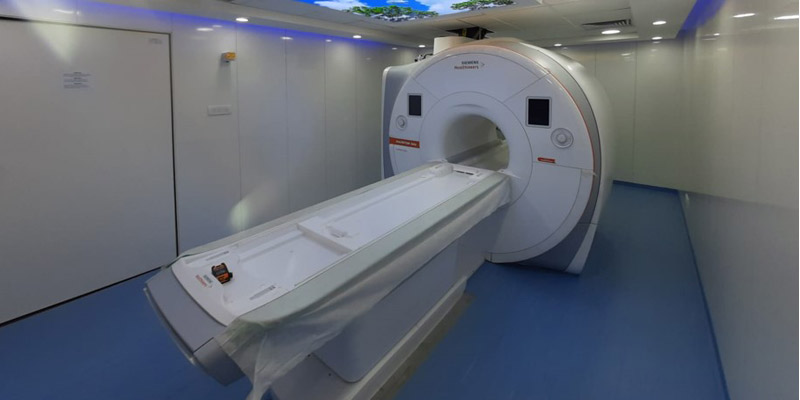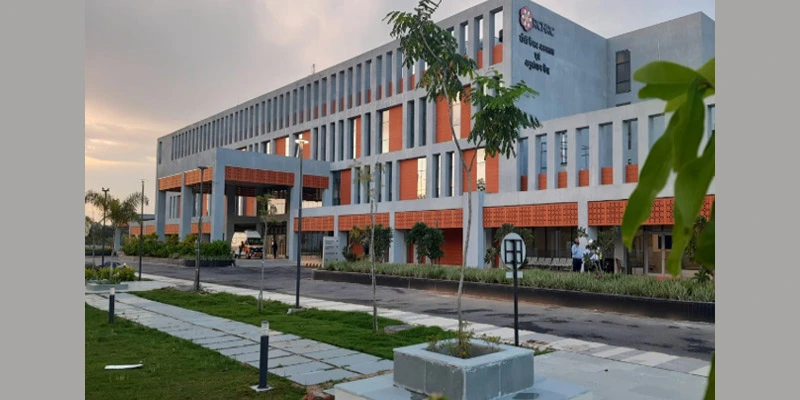
Shyam Sunder was living a life like many others in Ranchi. A life of stability. He built a steady life around his accounts job, followed his fitness routines, and was deeply committed to his young family. But in January 2024, it all changed.
Dizziness. Vomiting. Something felt off. He didn’t wait. He visited a doctor. A couple of CT and MRI scans. The diagnosis? Multiple brain tumours. Grade 3.
“It shattered me,” Shyam admits. “My immediate thought was – what would happen to my family? My children were just 9 and 11. My wife and I decided not to tell them. I had to fight. For them. And for myself.”
Shyam underwent surgery in Bangalore, where the largest operable tumour was removed. Within a week, he returned to Ranchi. But that was just the beginning. The smaller tumours were inoperable. Post-operative care and radiation therapy were next.
By then, his funds were exhausted. He had lost his job, too. He had no clue how he would manage. That's when a close friend told him about the Ranchi Cancer Hospital and Research Centre (RCHRC) in Kanke, Ranchi. A major initiative under the Tata Trusts’ Cancer Care Programme, RCHRC aims to bring affordable, high-quality cancer care to underserved communities in the region. RCHRC is a joint venture of the Ranchi Cancer Care Foundation (RCCF) and the Tata Cancer Care Foundation (TCCF). Its state-of-the-art facility offers comprehensive cancer care from diagnosis and treatment to palliative and post-surgical support.
Shyam was advised to consult Dr Deepak Kumar, a Consultant in Radiation Oncology. That recommendation turned out to be a turning point in his recovery journey. At RCHRC, he began chemoradiation for the remaining tumours.

“It was reassuring to have it close to home,” Shyam says. Access to quality care just a few kilometres away made a world of difference. No exhausting travel. It saved money, time, and emotional energy when he needed it most.
“The experience at RCHRC felt different,” he says. “From facilities to treatment, it’s all good. But what also matters a lot is the behaviour. Doctors were warm and supportive. It matters much more than people realise. Friendly behaviour, a kind word or a reassuring smile helps a lot when fighting something like cancer. Deepak sir and the other staff made a lot of difference,” he adds.
Still, the journey wasn’t easy. Shyam’s treatment came with its costs — financial, emotional, and professional. Everything was uncertain. The financial side of cancer care is often invisible, but it’s what breaks many families. With his job gone and savings depleted, Shyam had to rely on bank loans to stay afloat.
He credits RCHRC’s role in his life as not just a hospital but a support system. Ayushman Bharat - Pradhan Mantri Jan Arogya Yojana (AB PM-JAY), the government health scheme, covered a big part of the expense towards his treatment. But even before that, RCHRC’s Beneficiary Support Fund (BSF) helped as pre-treatment diagnostic tests, usually not covered under AB PM-JAY, were taken care of.

"Consultation fees here are also low. The staff guided me through the process. Explained to me the [govt] schemes. That guidance meant everything,” says the 44-year-old, praising his ongoing experience at RCHRC as one rooted in empowerment — through access, clarity, and care.
Shyam continues to struggle with long hours of sustained stress, which makes regular work difficult at the moment. Therefore, he remains unemployed. But he views this as a temporary phase. He begins his days with morning walks and yoga, and draws hope from reading and listening to recovery stories that continue to give him strength.
A message from experience
Shyam knows he was lucky. He listened to his body and didn’t delay visiting a doctor when he felt something was wrong. But not everyone gets that chance.
“I acted fast, and that saved me. But during my course of treatment, I saw the other side too,” his voice choked as he continued. “A six-year-old child in my neighbourhood often suffered from headaches, which his family ignored. Over time, the headaches worsened, and tragically, he did not survive. The incident shook me deeply. We must take children’s health more seriously — if only a doctor had been consulted in time. This left a lasting impact on me.”
Shyam’s plea is simple but urgent: “Don’t ignore the signs. If something feels wrong, get it checked. If it’s nothing, you will have the peace of mind. But if it’s something, early detection gives you a real fighting chance.”
Today, Shyam’s voice carries the weight of experience, the strength of a survivor and the light of hope.
— As told by Shyam Sunder (a cancer survivor) to Suvajit Mustafi, Tata Trusts
